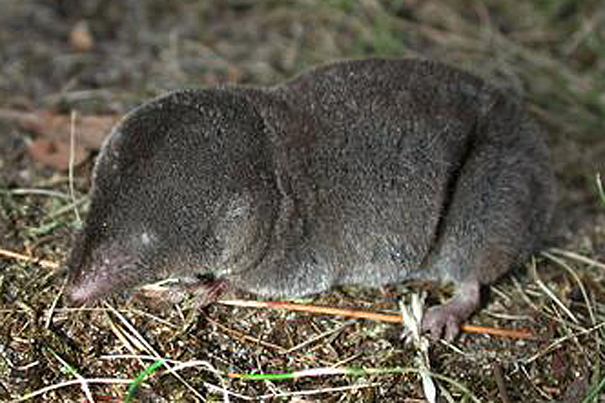Health
-
Lin Test
text with link. This is a quiz. Some text Name Name Quo modo autem philosophus loquitur? Tecum optime, deinde etiam cum mediocri amico. Invidiosum nomen est, infame, suspectum. Name Name…
-

Gender-affirming care is rare, study says
Fewer than 1 in 1,000 transgender youth receive hormones or puberty blockers

-

Nature offers novel approach to oral wound care
Slug’s sticky mucus inspiration behind adhesive hydrogel that can seal wounds in wet environment

-

Time for a rethink of colonoscopy guidelines?
Change informed by new findings would help specialists focus on those most at risk, researcher says

-

Should pharmacists be moral gatekeepers?
‘The problem is not opioids,’ says author of ‘Policing Patients’ — it’s overdose, pain
-

The deadly habit we can’t quite kick
Actions by tobacco companies worry researcher even amid ‘dramatic decrease’ in smoking among young Americans

-
Fishing for new medications
A robust new technique for screening drugs’ effects on zebrafish behavior is pointing Harvard scientists toward unexpected compounds and pathways that may govern sleep and wakefulness in humans. Among their…
-
Chronic sleep loss degrades nighttime performance
Although the exact function of sleep remains unknown, sleep is clearly necessary for optimal cognitive performance, learning, and memory.
-
Doubts about health care reform
A group of Harvard scholars and visiting health care experts offers a pessimistic view of health care reform at a Harvard Medical School symposium.

-
Quantum (not digital) computing
Study uses quantum computing to make calculations, in a breakthrough that could change myriad fields, including cryptography and materials science.

-
Light worsens migraine headaches
Normal 0 0 1 701 4001 33 8 4913 11.1282 0 0 0 Ask people who suffer from migraine headaches what they do when they’re having attacks, and you’re likely…
-
Evolution and ailments
The pressures of human evolution could explain the apparent rise of disorders such as autoimmune diseases and autism, researchers say. Some adaptations may even help such ailments persist.
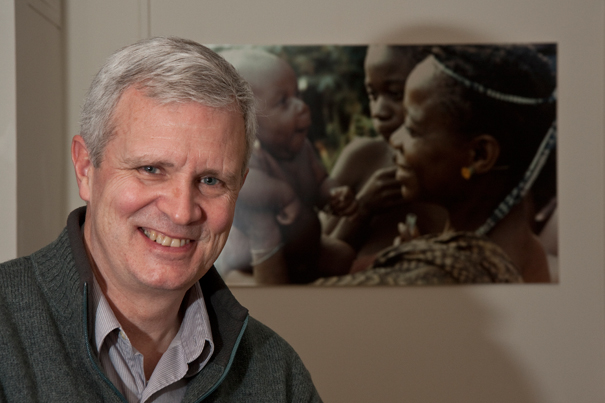
-
Tracking our traits
Researchers devise method to pinpoint key genetic variations under positive natural selection that may impact human health.

-
Tracking genetic traits over time
Fossils may provide tantalizing clues to human history, but they also lack some vital information, such as revealing which pieces of human DNA have been favored by evolution because they…
-
Coronary artery disease more severe in HIV-infected men, study finds
Harvard researchers at Massachusetts General Hospital (MGH) have found that relatively young men with longstanding HIV infection and minimal cardiac risk factors had significantly more coronary atherosclerotic plaques — some…
-
Light maps neurons’ effects
Scientists come up with method to track neurons as they interact with each other.
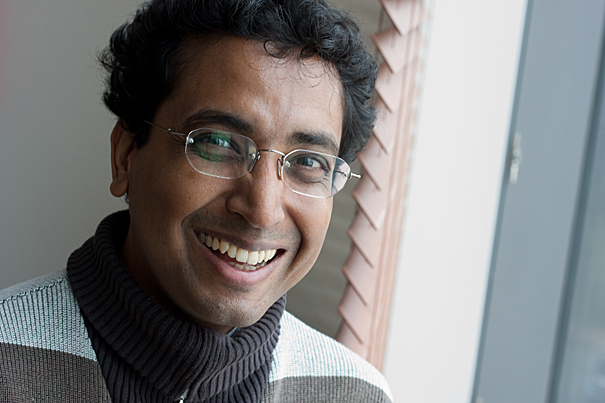
-
Natural flu-fighting protein discovered in human cells
Harvard researchers report having discovered a family of naturally occurring antiviral agents in human cells, a finding that may lead to better ways to prevent and treat influenza and other…
-
Light used to map effect of neurons on one another
Harvard scientists have used light and genetic trickery to trace out neurons’ ability to excite or inhibit one another, literally shedding new light on the question of how neurons interact…
-
Want to live well?
Harvard faculty members from a range of fields give tips on how to live healthy.

-
Shifts in health care landscape
Harvard School of Public Health Dean Julio Frenk delivered the Barmes Global Health Lecture Dec. 15 at the National Institutes of Health in Maryland, saying that new challenges and opportunities face the global health community amidst a changing health care landscape.

-
Turning genetic trash to treasure
John Rinn, a researcher at Harvard Medical School, the Beth Israel Deaconess Medical Center, and the Broad Institute, overcame a rocky start in life through a passion for biology and discovered a new category of RNAs.
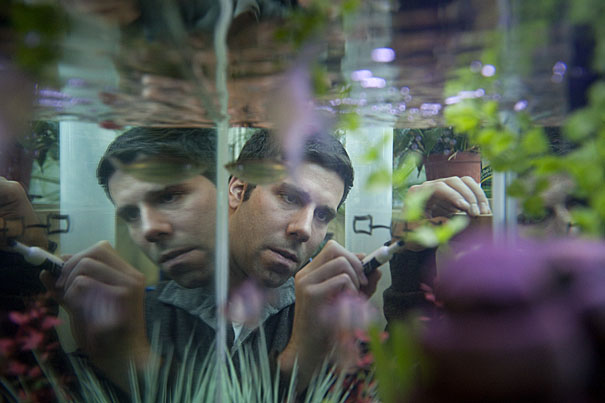
-
Forward into the past
As it celebrates its 150th anniversary, the Museum of Comparative Zoology is acknowledging its past and looking to its future as a source of zoological knowledge.

-
Obesity trends will snuff out health gains from decline in smoking
If obesity trends continue, the negative effect on the health of the U.S. population will overtake the benefits gained from declining smoking rates, according to a study by Harvard and…
-
Mesoamerican health plan
Jaime Sepulveda, former Mexican health official and a current director at the Gates Foundation, outlined plans to improve health for the poorest residents of Mesoamerica.

-
The deciding factor
What, exactly, distinguishes humans from apes? It’s certainly more than just our genes, renowned anthropologist Sarah Blaffer Hrdy. Hrdy, who received her A.B. in 1969 and Ph.D. in 1975 for work in Harvard’s Department of Anthropology, returned to speak on “Mothers and Others: The Origin of Emotionally Modern Humans.”
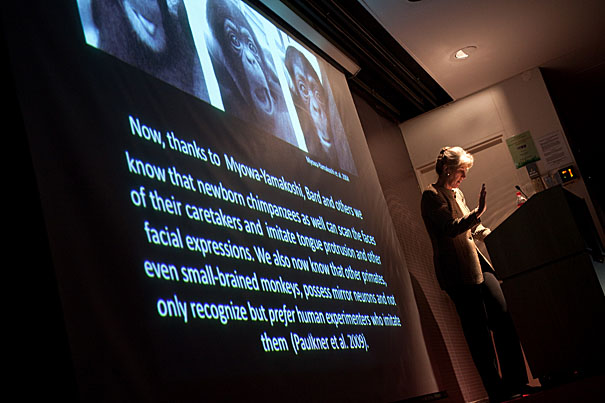
-
Cancer vaccine success
A cancer vaccine carried into the body on a carefully engineered, fingernail-sized implant is the first to successfully eliminate tumors in mammals, scientists report this week (Nov. 25) in the journal Science Translational Medicine.
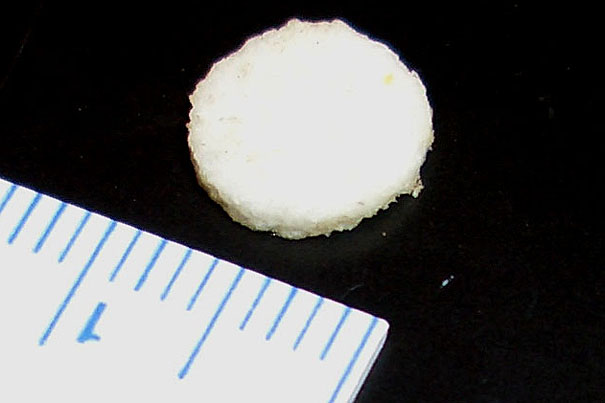
-
First cancer vaccine to eliminate tumors in mice
A cancer vaccine carried into the body on a carefully engineered, fingernail-sized implant is the first to successfully eliminate tumors in mammals, a team of Harvard bioengineers and biologists report…
-
Help from Shore
Yasuko Nagasaka is among 81 recipients awarded a Shore Fellowship. Such grants can be used for “mini-sabbaticals” by junior faculty who do not yet have independent funding.
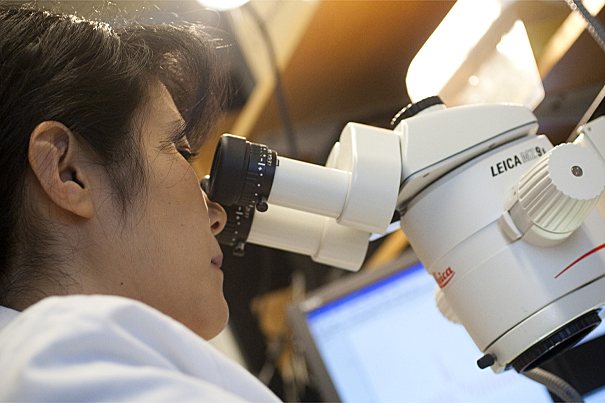
-
Researchers ‘NOTCH’ a victory in war on cancer
Normal 0 0 1 819 4673 38 9 5738 11.1282 0 0 0 Scientists have devised an innovative way to disarm a key protein considered to be “undruggable,” meaning that…
-
Speeding new medicines and technologies to the developing world
A consortium of Harvard and five other leading research universities and the Association of University Technology Managers (AUTM) have endorsed a far-reaching “Statement of Principles and Strategies for the Equitable…
-
Breast cancer: Scourge of developing world
Three-day symposium opens, focusing attention on the rise of breast cancer in developing nations, even as resources are scarce to contain it.
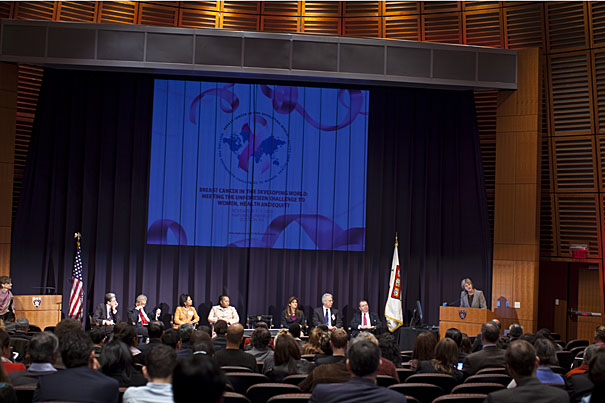
-
Caught in the act
Breaking up may actually not be hard to do, say scientists who’ve found a population of butterflies that may be on its way to a split into two distinct species.

-
Orphan army ants adopted
Colonies of army ants, whose long columns and marauding habits are the stuff of natural-history legend, are usually antagonistic to each other, attacking soldiers from rival colonies in border disputes that keep the colonies separate. But new work by a researcher at the Harvard Museum of Comparative Zoology and colleagues at the University of Copenhagen shows that in some cases the colonies can be cooperative instead of combative.
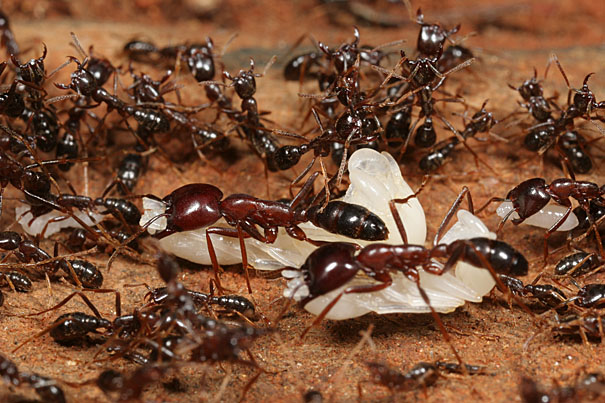
-
Orphan army ants join nearby colonies
Normal 0 0 1 415 2369 19 4 2909 11.1282 0 0 0 Colonies of army ants, whose long columns and marauding habits are the stuff of natural-history legend, are…
-
Health progress for women
Julio Frenk, dean of the Harvard School of Public Health, touts global progress on women’s health issues, though more challenges lie ahead.

-
Venomous bite
Biologists have shown that independent but similar molecular changes turned a harmless digestive enzyme into a toxin in two unrelated species — a shrew and a lizard, giving each a venomous bite
